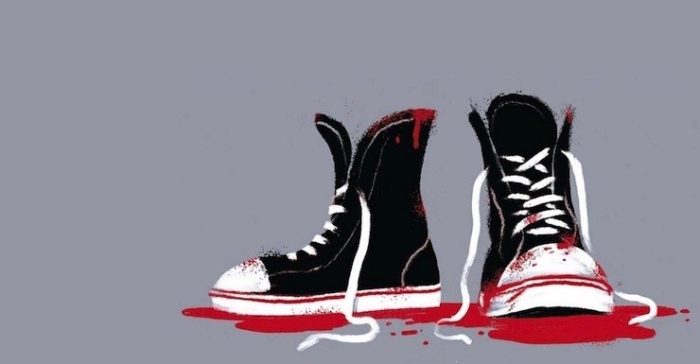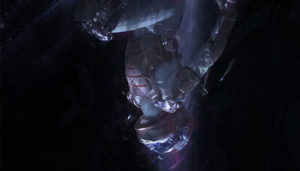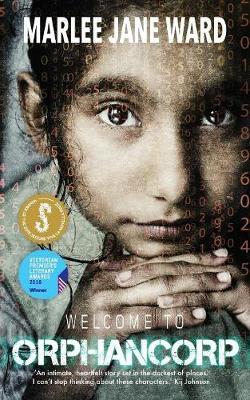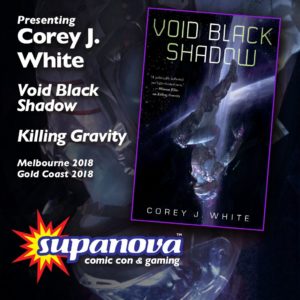Last month I was back on the road with Supanova, doing both the Melbourne and Gold Coast shows.
This time around the big literary draw of the tour was Terry Brooks, author of the Shannara Chronicles, and one of the biggest-selling living fantasy authors. That last bit I got from wikipedia, and it’s italicised because I would not have known, because when you talk to the man himself, he is not the sort of braggart who’d talk about that sort of thing. Instead he was kind, good-humoured, sharp, and pretty bloody cheeky when he wanted to be (if he was Aussie, no doubt we’d call him a larrikin).
I have this thing where I never bother to go out of my way to talk to famous people. Partly this is self-deprecating (“Why would they want to talk to me?”) and partly it’s because I’m not really fussed by the whole celebrity thing. So, whilst I was happy to share a table with Terry and his wonderful wife Judine, I wasn’t going to bother them, because they’re busy people, probably worn out from all the travel and signing and all the rest. But, well, I’m glad Terry was having none of that, because some of the best times I had over those two weekends was simply chatting to him and Judine about books, movies, writing, and whatever else came up.
And beyond how great it was chatting to them personally, it’s also great to meet an elder statesman of SFF and find out that he’s just a really warm and friendly person, who seems genuinely interested in his readers, and in those writers who are still up and coming. (Similarly, everyone knows George R.R. Martin thanks to Game of Thrones, but it wasn’t until I travelled to Worldcon in 2016 that I realise how generous he is with his time [and money]. He’s a champion of diversity in SFF and genuinely cares about the field and where it’s going.)
Speaking of up-and-coming, also on the tour were Maria Lewis and Lynette Noni, who are both doing great things in fantasy. Maria is a fierce proponent for diversity (even when that means making it harder to shop around the rights for her own book), and shit, she’s just fierce in general. I feel like Lynette is going to be a really big deal in fantasy one day – and that’s simply based off the sheer number of fans she has already when her first book only came out at the start of 2015.
Also on the tour were Keri Arthur and Ian Irvine, who I also had the pleasure of Supanova-ing with last November. They’re both titans of Australian fantasy… who you may never have heard of before because that’s kind of the way it works here in Aus. Write 20 or 30 or 40 books, become a New York Times Bestseller, but if you’re writing in the genre ghetto, the Australian scene simply doesn’t care. Anyway, they were both fantastic to chat with, just like last time (and I’m seriously jealous of Ian’s deft way with naming books).
And I got to catch up with Marc and James Lindsay on the Gold Coast, who were selling their Perigord and Plato Wyngard books. They’ll be at Sydney Supanova, so be sure to swing by and say hello.
Anyway, I had a great time on tour. Really thankful to Supanova for getting us genre authors involved (and inviting me along), huge thanks to the volunteers who help us out all weekend, and thanks also to the QBD staff who do a great job of keeping our books in stock and visible.



